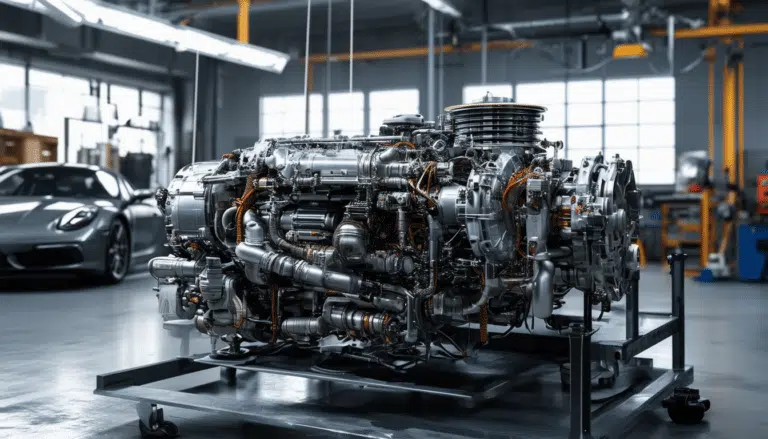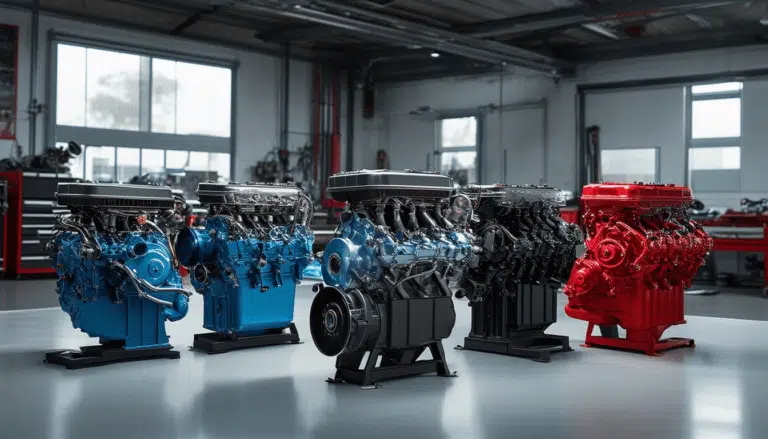How to be a more efficient driver and save on fuel
In a world where fuel costs continue to rise and sustainability becomes increasingly crucial, learning to be a more efficient driver is essential. Implementing practices that optimize fuel consumption not only helps reduce expenses but also contributes to decreasing the carbon footprint. Adopting conscious driving habits and performing the appropriate maintenance on the vehicle are key to experiencing these benefits. Below are simple yet effective strategies that will allow you to save on fuel while also taking care of the environment.
Being an efficient driver not only helps save fuel but also contributes to environmental protection. This article presents effective strategies that any driver can implement to optimize their fuel consumption and thus reduce their carbon footprint.
Know Your Vehicle
The first step to becoming a more efficient driver is to know your vehicle thoroughly. Understanding how your engine works and what factors influence its efficiency is fundamental. Perform regular checks on the condition of your fuel system, tires, and brakes. A well-maintained engine can significantly improve fuel efficiency. Also, make sure to use quality fuel for optimal performance.
Regular Vehicle Maintenance
The appropriate maintenance of the vehicle directly impacts fuel savings. Changing the oil regularly, checking the air filters, and keeping the tires inflated to the proper pressure are some of the practices that can help improve fuel economy. This not only reduces expenses but also prolongs the vehicle’s lifespan.
Benefits of Maintenance on Efficiency
Proper vehicle maintenance can offer long-term economic benefits. Vehicles that receive adequate maintenance tend to be more efficient in fuel usage, which translates into fewer visits to the pump and lower gasoline expenses.
Efficient Driving Style
Your driving style plays a crucial role in fuel consumption. Adopting a smoother and more moderate driving style can make a significant difference. Avoid rapid accelerations and sudden braking, as these maneuvers increase fuel consumption. Drive at a constant speed, especially on highways, and use cruise control whenever possible.
Practical Driving Tips
To optimize your driving style, consider these recommendations: always maintain a safe distance from the vehicle ahead to avoid unnecessary braking, and use the air conditioning wisely, as excessive use can increase fuel consumption. It is also advisable to avoid carrying unnecessary loads, as the extra weight can affect fuel efficiency.
Implementation of Energy Efficiency Measures
Implementing energy efficiency measures applies not only to vehicles but also to the home. For example, using more efficient appliances can complement fuel savings, creating a comprehensive approach to reducing energy expenses. Be sure to identify the appliances that consume the most energy and switch to more sustainable models.
The Importance of Education
Knowing and understanding energy efficiency practices is essential. Participating in workshops or courses on efficient driving can be beneficial. In addition, there are multiple resources and communities that offer helpful tips and support, enabling drivers to stay informed about the latest trends in fuel efficiency.
Government Initiatives to Promote Energy Efficiency
It is important to stay informed about government initiatives that promote energy efficiency. Many countries are implementing policies to encourage sustainable driving. These may include subsidies for electric vehicles, tax incentives for adopting cleaner technology, or programs for recycling old vehicles. Knowing about these initiatives allows you to take full advantage of opportunities that can facilitate the path towards more efficient consumption.
Conclusion
Being an efficient driver and saving on fuel involves a commitment to vehicle maintenance, adopting a more conscious driving style, and staying informed about the latest practices in energy efficiency. Small changes in our habits can lead to a large impact both on our wallets and on the environment.
Being an efficient driver not only means being aware of your driving style but also adopting practical measures that help reduce fuel consumption. Starting with proper vehicle maintenance is crucial. A well-maintained engine and an optimized fuel system ensure that the car runs at its maximum efficiency. This includes periodically checking air filters, spark plugs, and tire pressure, as all of these factors directly affect fuel performance.
Additionally, it is essential to implement a smooth and steady driving. Avoiding sudden accelerations and abrupt stops not only helps prevent vehicle wear but also contributes to a more rational use of fuel. Adopting the use of cruise control on highways can be an effective strategy to maintain a constant speed and thereby optimize consumption.
The use of technology can also play an important role in the pursuit of energy efficiency. There are applications and devices that allow drivers to analyze their driving habits and receive personalized recommendations. These tools are useful for assessing the vehicle’s energy performance and applying changes that improve its efficiency.
Lastly, it is crucial to stay informed about trends in energy efficiency and new developments in automotive technologies. Continuous education and awareness about the impact of our driving decisions on the environment are fundamental steps towards more sustainable mobility. By implementing these tips, each driver can not only save on fuel but also contribute to a more sustainable and responsible future.






